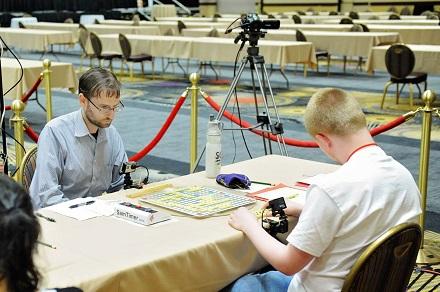
The North American Scrabble Players Association (NASPA) is an organization supporting the community of tournament, club and avid home players of the SCRABBLE® Brand Crossword Game. The mission of the organization is to foster a safe environment for people of all skill levels to play their favorite game, improve their abilities and above all, meet people who share a similar love of the game.
NASPA hosts its national SCRABBLE® Championship each year. Clubs of players are also located throughout the country, and these host their own weekly tournaments and regional events.
Sports Destination Management: SCRABBLE® has been in the news lately!
John Chew: Yes, it has. Right now, there is a minor media firestorm going on over the fact that we’ve chosen to ban the use of racial and ethnic slurs when playing our games. There’s an article about it in the New York Times.
SDM: How did it come about?
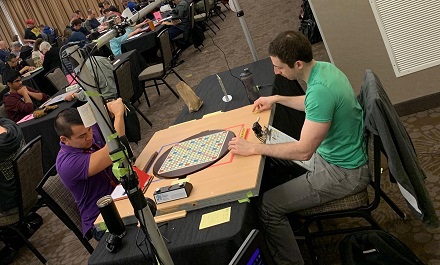
Editor’s note: The New York Times article linked above details the process, and the actions, taken by the organization. A full statement from NASPA on the issue can be found here.
SDM: Is the removal of terms unique to SCRABBLE?
Chew: Oh, no. There are a lot of games on the market that are going through the same thing. Magic the Gathering, for example, removed some cards that they deemed to be racist from their games. Of course, some players protested and said, “It’s just cards!” I think there is always going to be some inertia and a resistance to change. It does get ridiculous, though; recently, there was some discussion about the fact that in the game of chess, the player with the white pieces always makes the first move. Someone, of course, said it was racist but that’s just the rules of the game.
SDM: Returning to SCRABBLE, do you think there has been an uptick of interest in the game during COVID?
Chew: People are looking for ways to entertain themselves, and if, for example, kids start playing it as an early age, they can develop into adults who play. But that was always the case.
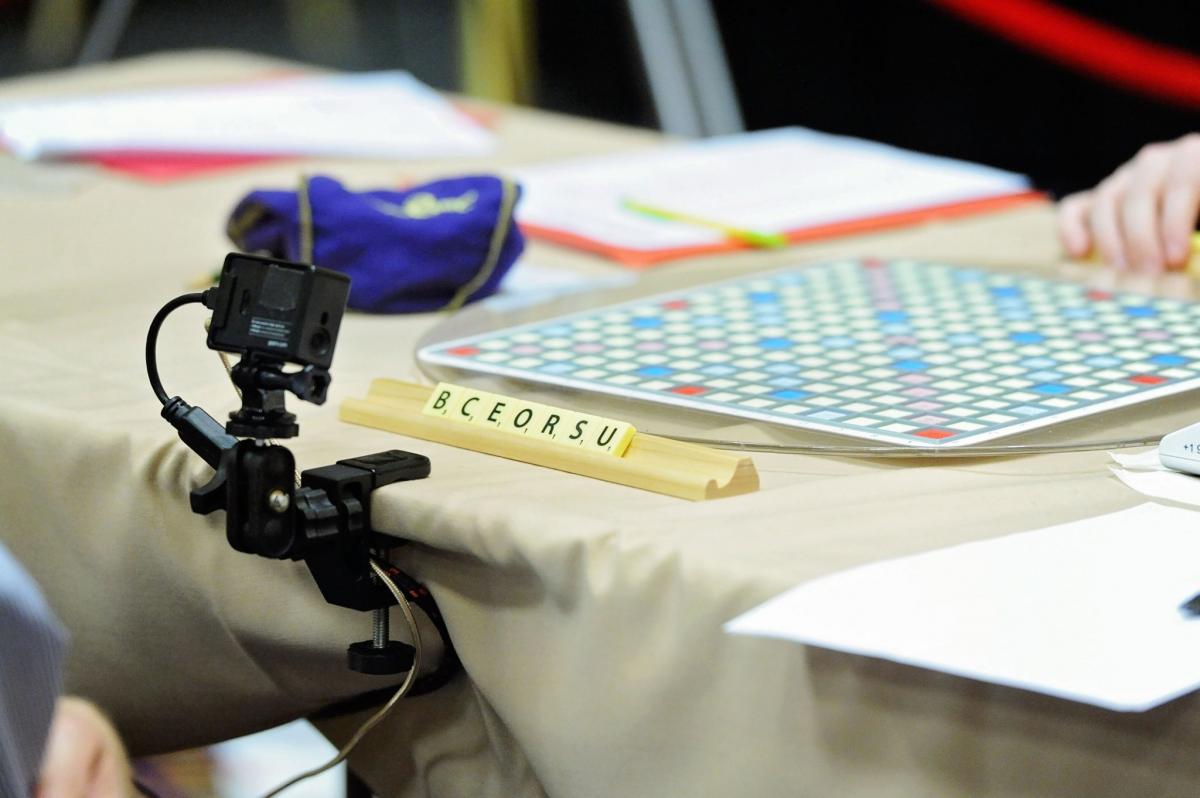 SDM: Do you host tournaments online?
SDM: Do you host tournaments online?
Chew: We don’t officially have tournaments online because people could cheat; however, there is online SCRABBLE. In June, Hasbro, who owns the trademark to the game, moved the game from one platform, Electronic Arts, or EA, to another, Scopely. It has been well received by people who want to play the game on their phones.
SDM: NASPA does have an annual in-person event.
Chew: Yes, we host one big event each year, our SCRABBLE Championship. It was going to be in Baltimore this summer but because of COVID, it was cancelled. We’ve rebooked it for next year.
SDM: What are you looking for, in general, in a tournament site?
Chew: We like to find a city that is a good value. We don’t have a huge budget; we’re a nonprofit, and I would say at least one-third of our players are budget-conscious. We need a place near a transportation hub so that people can drive in or fly in as they need to. We also like to find a city where players’ families can have a good time. We need somewhere between 12,000 to 20,000 square feet and we like to strike a deal for a guest room commitment that offsets the cost of the playing space.
SDM: Your plans for Baltimore were to use a hotel ballroom. Have you always done that?
Chew: No, this was our first national championship to be in a hotel ballroom in many years. We previously used about 20,000 square feet of convention center space. But we recently asked ourselves why we were paying for so much space; our thought was that if we could go with a smaller area, it would be cozier. Obviously, we didn’t know then about COVID!
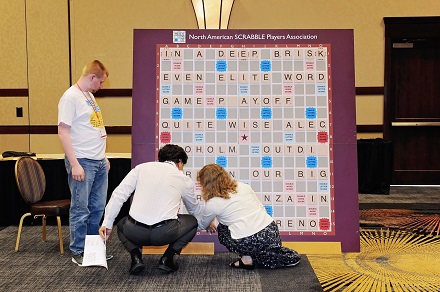 SDM: How many players attend the national championship?
SDM: How many players attend the national championship?
Chew: Depending on the year and the location, anywhere between 300 and 800.
SDM: If a city wants to express interest in hosting your championship, where should they get that information?
Chew: It can all be found at this link.
SDM: How has the virus affected the organization, apart from cancelling the championships?
Chew: We’ve had to adapt how we play. The virus isn’t as bad for SCRABBLE as it is for choral singing, but it does involve relatively close contact with other people. We hear from many of our players that they miss going to a tournament or club and seeing each other.
SDM: Is the demographic of SCRABBLE players more male, more female or a fairly even split?
Chew: We have pretty even distribution among males and females. For some reason at the elite level, there tends to be more men than women.
SDM: What drives increases in participation?
Chew: Generally, if the game appears in a movie or book, we’ll see a spike.
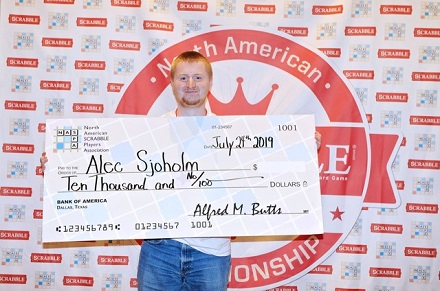 SDM: Earlier, you mentioned people playing local or regional tournaments at the club level. Where are those held?
SDM: Earlier, you mentioned people playing local or regional tournaments at the club level. Where are those held?
Chew: We only sanction those events; we don’t put those on. They are put on by the clubs. But a regional tournament might be held somewhere like a church basement.
SDM: How many players are in NASPA?
Chew: We have maybe 25,000 fairly steady players and I would say 50,000 who have an interest in playing on a regular basis.
SDM: Do kids play?
Chew: Yes, they do. There tends to be a dip in participation at the high school and college age brackets. It is a perennial problem for us. I think kids find other things to be interested at that age. They often come back toward the end of college; in many cases, it’s because they realize the importance of having something to do that keeps them mentally active. I think people also realize and appreciate that playing SCRABBLE is something they can do over the course of a lifetime without degradation of their joints.

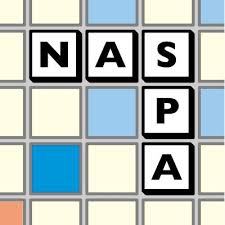 NASPA Website
NASPA Website